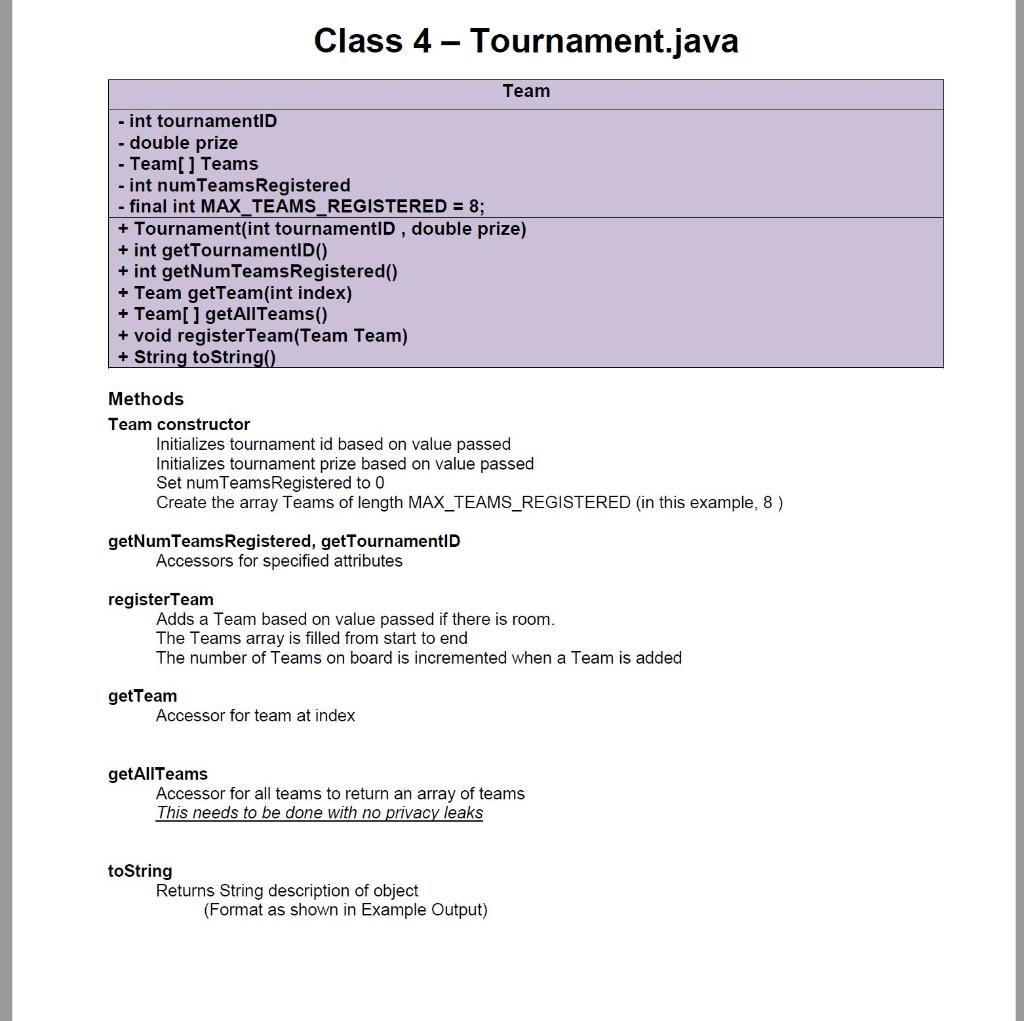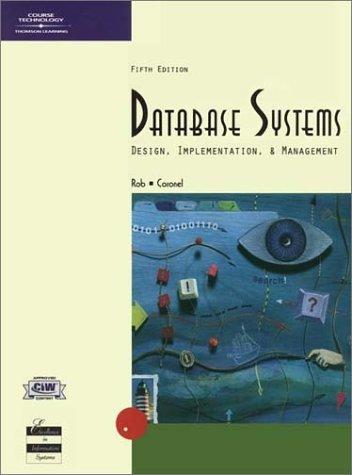Question
Background You are tasked with creating a system that manages the tennis player/team/tournament database. The system is menu driven. And the user can choose to:
Background You are tasked with creating a system that manages the tennis player/team/tournament database. The system is menu driven. And the user can choose to: 1. Display Loaded Players 2. Add Tournament 3. Add Team to Tournament 4. Display Team 5. Display Player 6. Display Tournament 7. Display Total Number of Teams 0. Quit The players are loaded into the system from a file at the start of running the program, and can not be changed once loaded. A player consists of its name, age and country code. A Team consists of a player and a manager. A tournament can carry up to max Teams registered (8 in this example), it has an id and a prize. A manager has a name. When a Team is added, a tournament must exist. A Team can only have one manager. A tournament can only be started if there is at least 2 Teams and the tournament exist. Create each class following the UML diagram, descriptions and tests. A test class is provided for you to test two of the classes as you develop. If the entire program does not work, a similar version will be used for marking. Hence it is VERY important to get each working individual before proceeding to the next to maximize potential marks and feedback. It is recommended you add to the tests provided or create your own tests, to cover all possible scenarios. You must use the attributes and methods provided in the UML diagrams and base template You can add private helper methods if you want to any class
Class1 Manager
package tennis;
public class Manager {
private String name;
public Manager(String name) { this.name = name; }
public String getName() { return (name); }
public String toString() { return ("Manager[ Name: " + name + " ]"); }
}
Class 2
package tennis;
public class Player {
private String name; private int age; private String countryCode;
public Player(String name, int age, String countryCode) { this.name = name; this.age = age; this.countryCode = countryCode; }
public String getName() { return (name); }
public int getAge() { return (age); }
public String getCountryCode() { return (countryCode); }
public String toString() { String desc = "Player[ name: " + name + ", age: " + age + ", country code: " + countryCode + " ]";
return desc; } }
Class3 Team
package tennis;
public class Team {
private String teamName; private static int totalNumOfTeams = 0; private Manager manager; private Player player;
public Team(String teamName, Player player) { this.teamName = teamName; this.player = player; this.manager = null; totalNumOfTeams++; }
public String getTeamName() { return teamName; }
public static int getTotalNumOfTeams() { return totalNumOfTeams; }
public Player getPlayer() { return (player); }
public Manager getManager() { if (manager != null) { return (manager); } else { return (null); } }
public boolean hasManager() { if (manager == null) { return (false); } else { return (true); } }
public void setManager(Manager manager) { if (this.manager == null) { this.manager = manager; } else { System.out.println("This team already has a manager."); } }
public String toString() { String description = "Team[ name: " + teamName + ", player: " + player.toString() + ", manager: ";
if (manager != null) { description += manager.toString(); } else { description += "No Manager "; }
description += "]"; return (description); }
}
And Complete the class4
package tennis;
public class Tournament {
private String tournamentID; private double prize; private Team[] teams; private int numTeamsRegistered; private final int MAX_TEAMS_REGISTERED = 8;
public Tournament(String tournamentID, double prize) { // TODO }
public String getTournamentID() { // TODO }
public int getNumTeamsRegistered() { // TODO }
public void registerTeam(Team team) { if (numTeamsRegistered
public Team getTeam(int index) { // TODO }
public Team[] getAllTeams() { Team[] teams_copy = new Team[MAX_TEAMS_REGISTERED]; for (int i = 0; i
public String toString() { // TODO } }

Step by Step Solution
There are 3 Steps involved in it
Step: 1

Get Instant Access to Expert-Tailored Solutions
See step-by-step solutions with expert insights and AI powered tools for academic success
Step: 2

Step: 3

Ace Your Homework with AI
Get the answers you need in no time with our AI-driven, step-by-step assistance
Get Started


